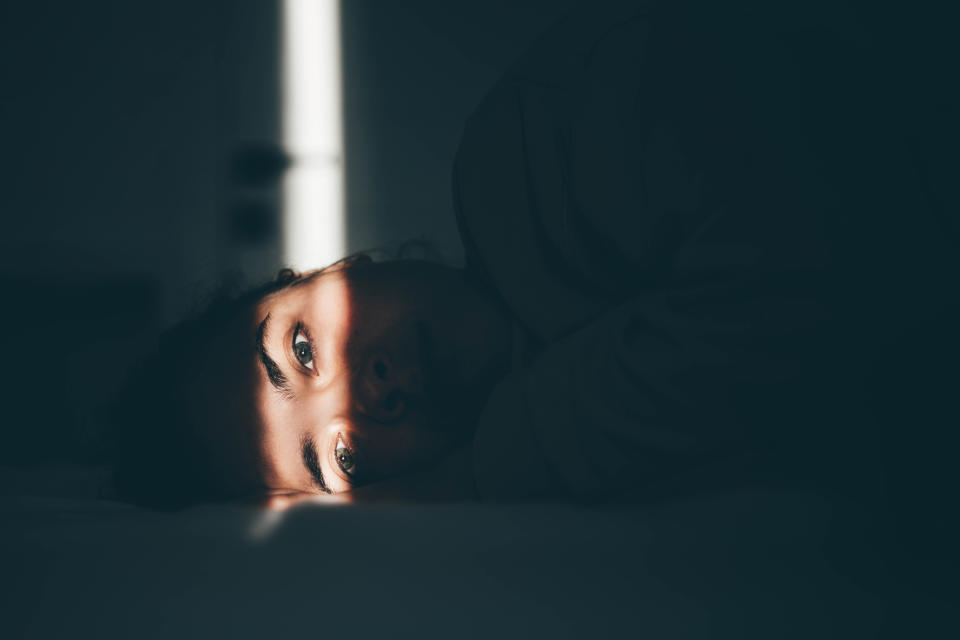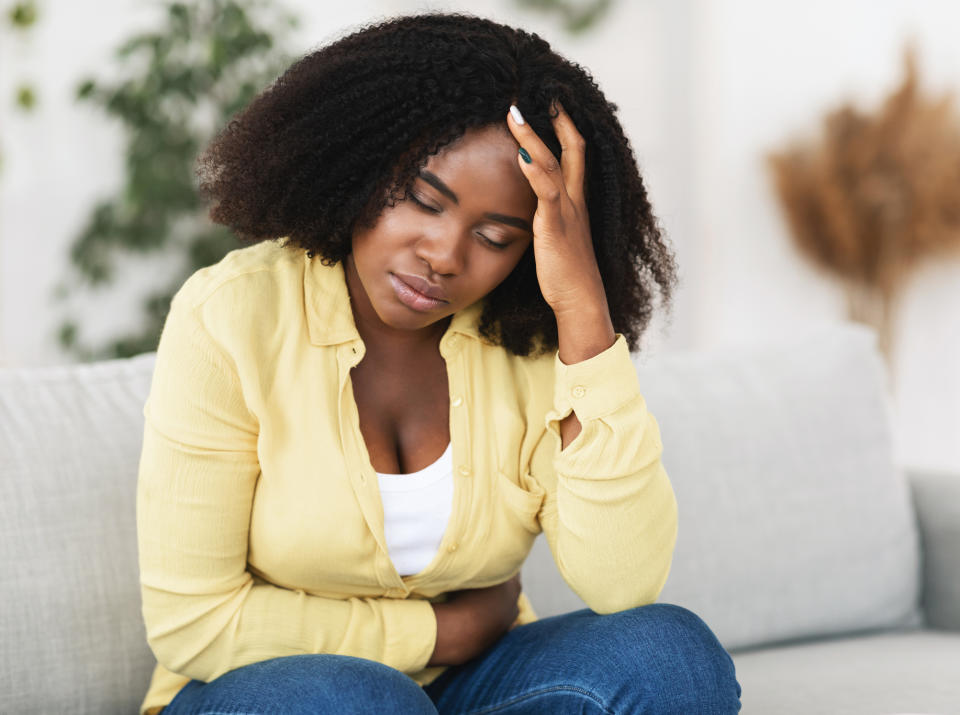Menopause is, for most women, an inevitable stage of life. This step, which usually occurs in your 40s or 50s, marks the very end of the menstrual cycle. Your body starts to use energy differently and your the ovaries stop producing eggs and estrogen – a sex hormone intimately involved in a wide range of body functions. As a result, your body may begin to feel, look, and behave differently.
Anyone who has experienced menopause will tell you: hot flashes may be the most buzzed about, but they’re not the only annoying symptom of menopause.
“This drop in estrogen levels is felt throughout the body, including the brain, heart, skin, and reproductive organs like the vagina, uterus, and ovaries.” Kyle Grahaman obstetrician-gynecologist and medical director of Pediatrix Medical Group in San Jose, California, told HuffPost.
While the symptoms vary from person to person, particularly in terms of duration and severity, evidence systematically shows that the vast majority of women suffer a few type of physical or emotional change during menopause that has a serious impact on their quality of life.
We spoke with three women’s health experts specializing in menopause to understand how the end of the menstrual cycle affects the body. Here’s what they said.
Persistent fatigue


According to Sherry Ross, an obstetrician-gynecologist and women’s health expert at Providence Saint John’s Health Center in Santa Monica, California, many people feel unusually exhausted during menopause. This is because the dive estrogen and progesterone can disrupt circadian rhythms and disrupt the functioning of the brain which regulates sleep.
Additionally, the hot flashes and the night sweats that menopausal women are prone to can cause them to toss and turn at night.
Chronic fatigue can trigger a cascade of negative health consequences, including brain fog, memory loss and poor concentration, Ross said. “All the collateral damage caused by fatigue negatively impacts a person’s overall quality of life.”
To increase your energy levels, try adopting a healthy lifestyle. The reason: Inactivity, diets high in overly processed foods, smoking and excessive alcohol consumption can exacerbate fatigue, Ross noted.
Regular physical activity – ideally 30 minutes of exercise three times a week – can improve your metabolism and energy levels. Finally, good sleep hygiene – avoiding caffeine before bed, skipping late afternoon naps, and adhering to a regular sleep-wake cycle – can improve your sleep quality throughout menopause, according to the study. National Institutes of Health.
Vaginal dryness


The vagina is filled with estrogen receptors, so when there is a drop in estrogen levels, it becomes more difficult for the organ to stay lubricated. Estrogen also plays a crucial role in maintaining healthy levels of bacteria into the vagina, which, in turn, keeps the surrounding skin healthy and hydrated, Graham explained.
“With all of these changes, the skin in the vaginal area becomes irritated, painful and even inflamed,” Graham said, adding that some people may notice that their vagina appears redder or pinker than usual.
The good news: It’s entirely possible to keep your vagina feeling and looking healthy throughout menopause. Vaginal moisturizers can be applied to the vagina and vulva every few days to keep the tissues healthy. Low dose estrogen therapy, in the form of a cream, tablet or ring, can also be prescribed by a healthcare professional to combat dryness. The last tip: stay sexually active. Regular sexual intercourse or vaginal stimulation can increase blood flow to the vagina and moisturize the vagina. vaginal tissues.
Painful sex


Of course, for some people, having more sex is not an easy task. Decreased estrogen can thin vaginal tissues and, as explained above, reduce natural lubrication of the vagina.
“Vaginal dryness, burning, irritation, itching, pain, tenderness and/or vaginal discharge – which, in turn, can lead to pain, dryness and/or bleeding during sex – can lead to an inability to have penetrative sex. » said the Dr. Madeline Dick-Biascoecheaurogynecologist at the University of Maryland Medical Center and assistant professor at the University of Maryland School of Medicine.
If sex isn’t on the agenda, she recommends using silicone-based vaginal moisturizers. lubricants and, in some cases, vaginal estrogen therapy. A sexologist can also help identify any outside stressors that might be affecting your sex life and help you feel confident and comfortable in your body again. No one should have to deal with pain and irritation that could make pursuing sexual pleasure impossible, Dick-Biascoechea said.
Mood changes


Mood changes can also be attributed to the loss of estrogen during menopause. After all, the hormone is directly linked to the production of serotonin and dopamine, which are neurotransmitters that influence mental health.
“Mood-regulating neurotransmitters decrease (during menopause), which worsens mood swings and depression,” Ross explained. Sleep problems and stressful life problems that tend to arise at this age, including chronic health conditions, job pressures, and aging parents, can have a further impact on a person’s emotional well-being.
Ross said there are a number of helpful practices that can improve your mood. Eat healthy diet, to exercise regularly, and limiting alcohol consumption has been associated with lower rates of depression.
Stress reduction techniques such as yoga, Tai chiAnd full awareness may also provide protection against the development of depressive symptoms. Cognitive behavioral therapy, antidepressants, and antianxiety medications have also been shown to effectively treat depression and anxiety.
Some people may want to consider taking hormone replacement therapy, a medicine that replaces lost hormones. “HRT can control mood swings, depression and anxiety by reintroducing the much-needed hormone estrogen,” Ross explained.
Bladder problems


You may also find that you are running to the bathroom all the time or suddenly experience incontinence. Many people also develop recurrent urinary tract infections, sometimes three or more times a year, Dick-Biascoechea added. Once again, low estrogen is to blame.
“These symptoms can affect their ability and desire to participate in work, travel, social gatherings and even in their relationships with friends, family and loved ones,” Dick-Biascoechea said. This can naturally reduce the quality of life, research suggests and causes people to feel alone, isolated and depressed.
According to Dick-Biascoechea, only half of postmenopausal women with urinary changes will seek help, meaning bladder problems persist and, in some cases, get worse. But the good news is that there are multiple strategies – including changes in diet and fluid intake, gentle soaps and detergents, pelvic floor exercises, vaginal estrogens, prescription medications, and pelvic surgery or vaginal – which can help.
If you have any of these symptoms, talk to a doctor such as your GP or an obstetrician-gynecologist. Menopausal symptoms are known to impair people’s quality of life – but they don’t have to.
“There are very effective treatments,” Dick-Biascoechea said. “And no one should have to tolerate bothersome symptoms on a daily basis. »This article was originally published on HuffPost.


